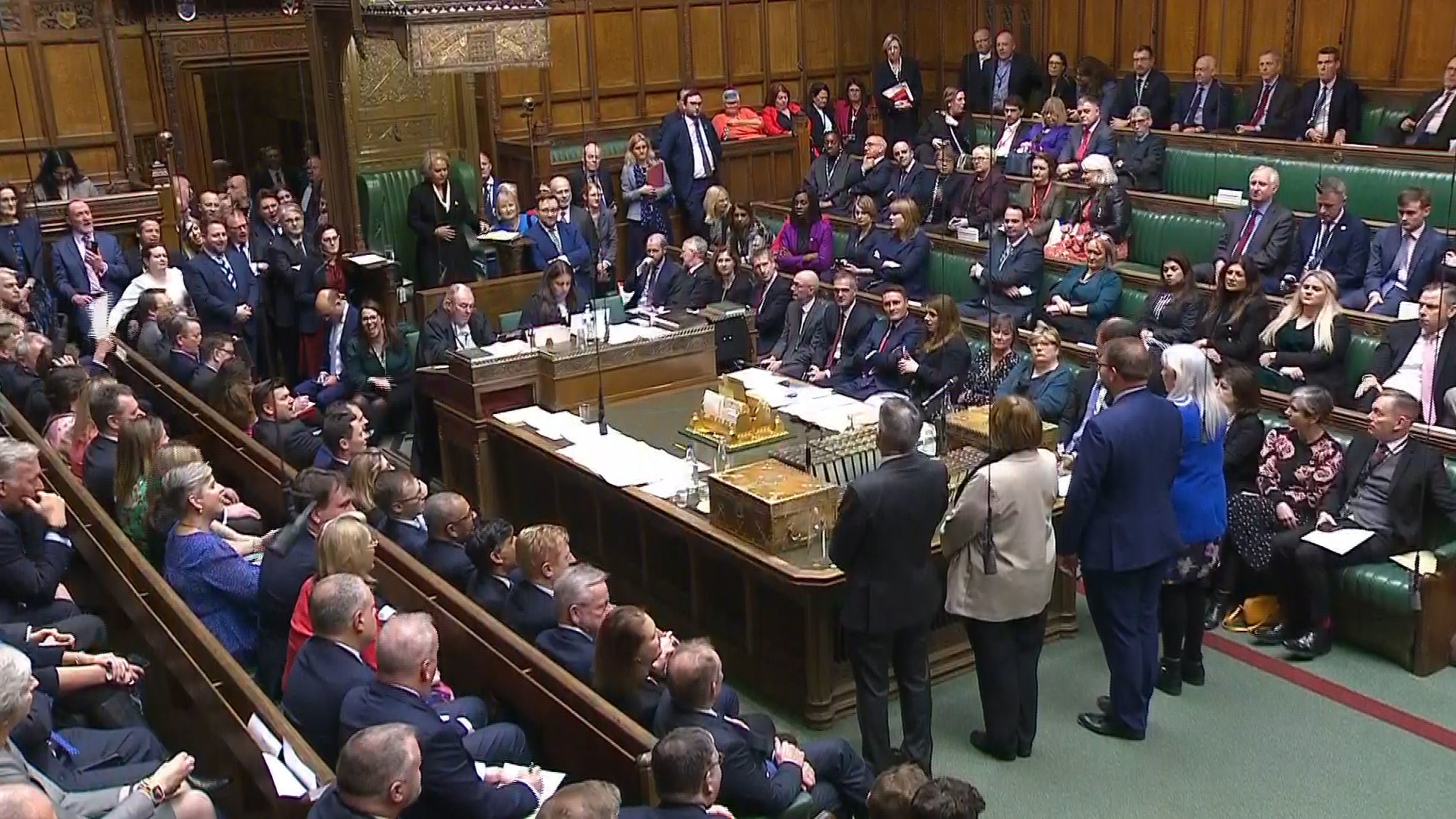Rishi Sunak may have won the vote on Rwanda but he’s lost the moral argument
Editorial: Some votes will be won, and some will be lost, but the Rwandan plan will never be useful or morally sound. Sooner or later, the prime minister will suffer humiliation as a result

Whatever the parliamentary career of the Rwanda bill turns out to be, what is clear already is that the government has lost both the moral and the practical arguments surrounding it; and that it will in any case, even if passed, not stand for long.
On the very day that an asylum seeker was found dead on the Bibby Stockholm barge in Dorset, the government seeks to disapply human rights that remain guaranteed internationally under conventions to which the UK is a party.
Such rights are universal – they apply to all persons irrespective of their legal status, their present location, or indeed their motives, honourable or otherwise. They are absolute. Morally, they occupy a space separate from concepts of legality or sovereignty, let alone politics. Our human rights are, according to taste and preference, God-given, natural and inherent to humanity.
As for law, it is absurd to suppose that any law even passed by a sovereign parliament should override international laws and obligations. It may be that there is some legal doctrine that disregards treaties rather than statutes; but it is dishonest for the UK to in effect pretend that it abides by the European Convention on Human Rights (ECHR) and the authority of its courts, while simultaneously passing laws declaring that it need not and shall not.
The Supreme Court seems to think that international treaties need to be complied with as matters of law. That should be good enough. Even less defensible is any attempt to “strengthen” the Rwanda bill to prevent the right of any individual to go to court in an extreme case. That is surely unconstitutional.
In any case, as those on the right argue, the only honest and legally sound thing the British government can do in this circumstance is to leave the ECHR and other similar international treaties under UN auspices, and those linked to them, such as the Good Friday Agreement and EU-UK Trade and Cooperation Agreement. Rescinding all of those simply to resuscitate the flawed and frankly doomed Rwanda plan seems madness.
According to its many critics on the right of the Tory party, the Rwanda bill doesn’t go far enough, and will not work. Perhaps, for all sorts of reasons. But any attempt to strengthen the bill, and further weaken human rights and the UK’s international commitments, would run into one insuperable practical consequence; that Rwanda would rescind the treaty and the plan.
The government of Rwanda has indeed issued such a warning, and there is surely no point in a British parliament passing legislation to send people to Rwanda and then Rwanda turning round and saying that it cannot accept them in such circumstances. This a real danger. The Rwandan foreign minister, Vincent Biruta, recently declared: “It has always been important to both Rwanda and the UK that our rule of law partnership meets the highest standards of international law, and it places obligations on both the UK and Rwanda to act lawfully. Without lawful behaviour by the UK, Rwanda would not be able to continue with the Migration and Economic Development Partnership.”
Such a denouement would be the point at which all these high-minded debates about sovereignty and the authority of the Sunak administration descend into pantomime. The very attempt to make the policy work by abolishing recourse to a court in any circumstance would bring it crashing down.
Presumably, the £140m and counting that has been spent on the Rwanda plan would be irrecoverable; so would the credibility of the prime minister. He was unwise to make “stop the boats” a test of the success of his administration, and Rishi Sunak is now expending dangerously disproportionate quantities of political capital on one minor part of the policy, the Rwandan “deterrent”.
Some votes will be won, and some will be lost, but the Rwandan plan will never be useful or morally sound. Sooner or later, Mr Sunak will suffer humiliation as a result.



Join our commenting forum
Join thought-provoking conversations, follow other Independent readers and see their replies
Comments